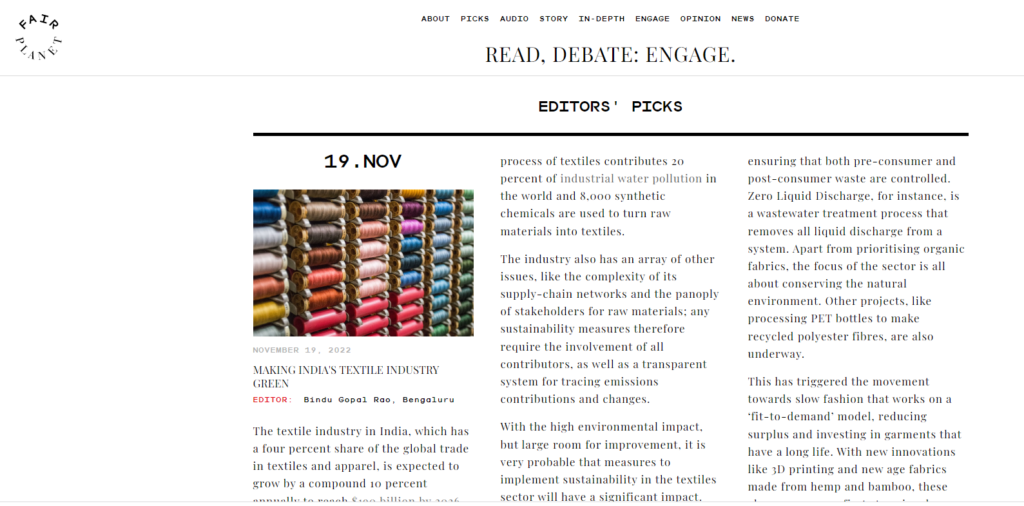
Often said to be one of the most pollutant sectors, textiles use several chemicals in the process of converting yarn to garments. Added to this is the fact that fast fashion is the way things are headed in the industry.
To complicate matters, the textile industry in India is largely unorganised and this means that making green choices is more complex. The Indian textile industry is taking steps to ensure that it shakes off its tag as being a large contributor to environmental pollution.
Globally, the textile and garment sector accounts for 6-8% of total carbon emissions or about 1.7 billion tons in carbon emissions per year.
The industry also has issues like complex supply chain networks and many stakeholders for raw materials and methods and any sustainability measures need the involvement of all of them as well as a need of a traceability system for monitoring sustainability.
Conscious manufacturers are hence making concerted efforts to introduce sustainability by using innovative materials, using safe dyes, using natural resources, water, and energy in production, treating waste material, and ensuring the focus is on reducing, reusing, and recycling.
Read the full story that first appeared in Fair Planet here:

Leave a Reply